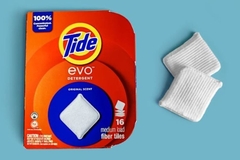Hair-derived toothpaste may reverse tooth decay, study finds

New research finds that creating toothpaste from hair holds a clinically effective and environmentally sustainable potential to protect and repair damaged teeth. Keratin, the protein found in hair, skin, and wool, can stop the early stages of decay and repair tooth enamel.
The scientists highlight that when keratin comes into contact with saliva, it produces a protective coating mimicking the structure and function of natural enamel.
“Our findings open the door to keratin-based oral care products that do more than protect teeth. They actively rebuild lost enamel, and could be formulated into daily-use products such as toothpaste and mouthwash, which would be our first go-to-market strategy,” Dr. Sherif Elsharkawy, senior clinical lecturer and consultant in Prosthodontics at the Faculty of Dentistry, Oral and Craniofacial Sciences, at King’s College London, England, tells Personal Care Insights.
“We are also developing a professional-grade gel, applied in clinics, for people at higher risk of tooth decay. These products would be water-based, sustainable, and low-cost, making them suitable for mass-market and premium oral care ranges.”
Elsharkawy says when extracted from natural sources such as sheep wool, keratin acts as a scaffold for enamel-like crystal growth.
“In our study, when keratin is combined with calcium and phosphate that are naturally present in saliva, it forms highly ordered crystals that match the structure and function of natural enamel. This stopped early decay and rebuilt the protective barrier of the tooth, sealing exposed nerve channels and reducing sensitivity,” he explains.
 Using keratin for oral care could become possible in the next two to three years.Hair for dental care
Using keratin for oral care could become possible in the next two to three years.Hair for dental care
Aging, consuming acidic food and drinks, and poor oral hygiene all contribute to enamel erosion and decay, which cause tooth sensitivity and eventually tooth loss.
“Unlike bones and hair, enamel does not regenerate. Once it is lost, it’s gone forever,” says Elsharkawy.
He explains that fluoride is the most widely available active ingredient in oral care today.
“While fluoride strengthens enamel and slows decay, it cannot rebuild enamel once it is lost. Keratin is different as it regenerates enamel by restoring its natural architecture. This means it has the potential to stop decay and reverse early-stage damage, something no current consumer toothpaste or mouthwash can achieve,” details Elsharkawy.
Keratin is already being explored for personal care products. Because of its structural and protective properties, keratin from hair or wool has already been used in skin creams, hair treatments, and nail-strengthening products.
“Its biocompatibility and sustainability make it a valuable ingredient for other personal care applications beyond oral health,” says Elsharkawy.
Commercializing
The study, published in Advanced Healthcare Materials, says tooth decay is one of the most prevalent diseases globally.
According to the researchers, using keratin for oral care could become possible through toothpaste or a professionally applied gel for targeted repair in the next two to three years.
“Keratin offers a transformative alternative to current dental treatments. Not only is it sustainably sourced from biological waste materials like hair and skin, it also eliminates the need for traditional plastic resins, commonly used in restorative dentistry, which are toxic and less durable,” says first author of the study, Sara Gamea, a Ph.D. researcher at King’s College London.
“Keratin also looks much more natural than these treatments, as it can more closely match the original tooth’s color,” adds Gamea. “This technology bridges the gap between biology and dentistry, providing an eco-friendly biomaterial that mirrors natural processes.”
 Elsharkawy says we are entering an exciting era where biotechnology can treat symptoms using the body’s materials.Biotech in personal care
Elsharkawy says we are entering an exciting era where biotechnology can treat symptoms using the body’s materials.Biotech in personal care
Elsharkawy adds that we are entering an exciting era where biotechnology can treat symptoms and restore biological function using the body’s materials.
Last week, a study conducted by Beiersdorf found potential in using bone marrow cells in blood for anti-aging skin care applications.
“With further development and the right industry partnerships, we may soon be growing stronger, healthier smiles from something as simple as a haircut.”
The scientists have formed a spinout company, Eterna Regeneratives, to lead the commercialization.
“The interest from industry has been significant because this represents a true game changer for oral care. It is sustainable, effective, and scalable. We are sourcing keratin mainly from sheep wool, and we are confident that the first keratin-enriched toothpaste and mouthwash could reach the market in two years,” Elsharkawy concludes.













